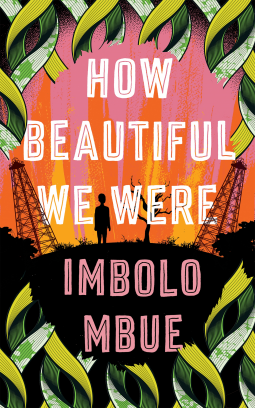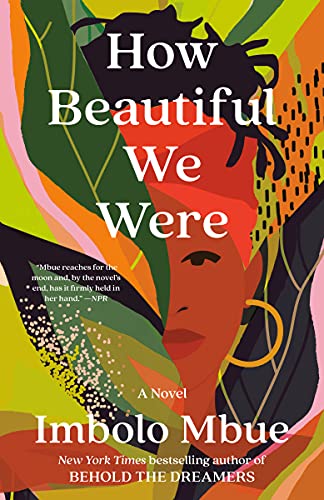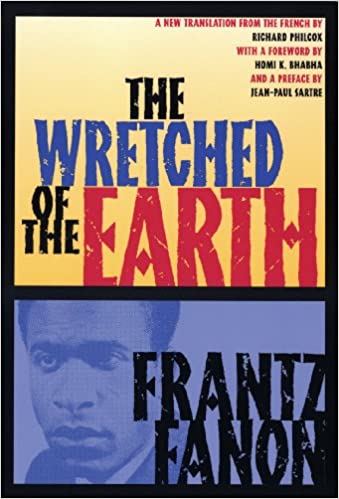This was a brilliant read and the kind of cross cultural, reading journey I love.
 Imbolo Mbue takes you back to the fictional African village, Kosawa in the 1980’s. It could be in any number of countries, a fact acknowledged by naming her characters after real towns and cities.
Imbolo Mbue takes you back to the fictional African village, Kosawa in the 1980’s. It could be in any number of countries, a fact acknowledged by naming her characters after real towns and cities.
She tells what should be a simple story, about how the village has been affected by the interventions of outsiders and those placed in power within their own country and the people’s attempt to seek and find justice.
Mostly the story is narrated through the multi-generational members of one family, of Thula and her brother Juba, their mother Saleh, grandmother Yaya, uncle Bongo and then the third person plural (we) of The Children, Thula’s age mates. It reaches back to the 1970’s and travels through to the current day.
Seeking Justice, Inviting Retribution
The issue the village initially attempts to address is the polluting of the river and air, resulting in the poisoning of the land, the destruction of their farming way of life and the deaths of too many of their children, since this latest American corporation Pexton, arrived and began drilling for oil.
Though the villages allowed the corporation to drill for oil, based on assurances that all would be more than well for them, they suspect their problems are due to contamination created by the activities of Pexton. The corporation deny all and their paid village representative tries to downplay the gravity of their losses.
 At the regular eight weekly meeting, the village madman who has never before now before attended, stands up to the group of representatives and threatens them. The villagers, at first fearful of repercussions, become courageous.
At the regular eight weekly meeting, the village madman who has never before now before attended, stands up to the group of representatives and threatens them. The villagers, at first fearful of repercussions, become courageous.
Thula’s father lead the group of men to confront the leadership of the company exploiting their land for oil.
These men have now been missing over a year – no bodies, no explanation, no solution. His brother Bongo becomes their new (reluctant) leader. Their initial plan, to elicit names of those who can help them, encounters unforeseen complications.
Patience, Process and Persecution, All Legal Of Course
Their attempts to reason with whoever it is they can speak to to address their concerns, because this is all happening on their land, result in dire consequences, yet they persevere and each generation attempts to reconcile the problem.
It is a demonstration of how complex resistance can be, as it passes from one generation to the next, an attempt to balance the desires of the individual, family and the community.
Each time they learn more about the complexity of a situation that is repeated the world over by those who exploit partnering with those in power; how that power corrupts, the false hopes provided by those kindly ones who want to do good in the face of social injustice; and the money making machine of the law, lawyers, the cold-hearted ineffectiveness of the courts.
 When Thula accepts a scholarship to study in America, it is not surprising her favourite books include her uncle’s copies of Fanon’s The Wretched Of The Earth, Friere’s The Pedagogy Of The Oppressed and The Communist Manifesto.
When Thula accepts a scholarship to study in America, it is not surprising her favourite books include her uncle’s copies of Fanon’s The Wretched Of The Earth, Friere’s The Pedagogy Of The Oppressed and The Communist Manifesto.
Interesting and timely as the 60th anniversary edition of Fanon’s landmark text (translated by Maryse Condé’s husband Richard Philcox) will be reissued on 19 October 2021, described as is a masterful and timeless interrogation of race, colonialism, psychological trauma, and revolutionary struggle, and a continuing influence on movements from Black Lives Matter to decolonisation.
It’s about taking a stand and persevering against all odds, generation after generation. Because their land is their home, their livelihood, their legacy. Without it, they have nothing.
Fiction Creates Understanding and Empathy

Photo by Tope A. Asokere on Pexels.com
Though it is told through one family and over a much shorter time period, it reminded me a little of the cascading effect of reading Yaa Gyasi’s Homegoing; that understanding of significant historical events and people that influence each generation, how they then behave, react, respond. It is absolutely stunning. I loved it.
Similarly, on this theme of social justice, two other novels come to mind that portray their own versions of this situation, Patricia Grace’s Potiki and Tara June Winch’s The Yield, both highly recommended and reviewed here.
Brilliantly conveyed, right from that first character Kongo, deemed a madman, the one who stands up and commits the first act of rebellion, saying and doing what no else dares, the one who sees what others can not, knowing how it all will end.
Further Reading
New York Times: Imbolo Mbue’s ‘How Beautiful We Were’ Exposes the Human Cost of Capital
NPR: Author Imbolo Mbue Explores The Politics Of Oil In ‘How Beautiful We Were’ by Arun Venugopal
Imbolo Mbue
 Imbolo Mbue is the author of the New York Times bestseller Behold the Dreamers, which won the PEN/Faulkner Award for Fiction and was an Oprah’s Book Club selection. The novel has been translated into eleven languages, adapted into an opera and a stage play, and optioned for a miniseries.
Imbolo Mbue is the author of the New York Times bestseller Behold the Dreamers, which won the PEN/Faulkner Award for Fiction and was an Oprah’s Book Club selection. The novel has been translated into eleven languages, adapted into an opera and a stage play, and optioned for a miniseries.
Her novel How Beautiful We Were, is about what happened when a fictional African village decided to fight against an against American oil company that had been polluting its land for many years.
A native of Limbe, Cameroon, and a graduate of Rutgers and Columbia Universities, Mbue lives in New York.
N.B. Thank you to the publisher for providing a copy for review via NetGalley.

This turns out to be available in our library. It’s on the list for my next visit. Thanks!
LikeLike
It is really quite masterful, I hope you enjoy it as much as I did. It possibly could have been wound up a little earlier, but otherwise I found it a compelling and insightful read and I’m wondering why it hasn’t received the same fanfare as her debut. Though it doesn’t take much stretch of the imagination to answer that question oneself either.
LikeLiked by 1 person
I put this onto my list of books I most want to get in the next few months. Your review has just made me want to get it quicker. I love books that give insight into a completely different culture.
LikeLike
I realised after finishing how much more there was to this book, when I started looking up the names of the characters to see what places they actually were, something a non-African reader like me was totally unfamiliar with.
What a fun exercise that was; I discover:
Sahel is the ecoclimatic and biogeographic realm of transition between the Sahara to the north and the Sudanian savanna to the south; Thula is a town in Yemen; Bongo is a colourful African forest antelope; Juba is the capital of South Sudan; Bamako is the capital of Mali; Cotonou the largest city of Benin, Lusaka the capital of Zambia and there are probably more!
And those are incidental to the enormous span of historical themes and treatment portrayed between the village and the hegemonic behemoths they must confront to survive.
LikeLike
I love doing this kind of research too. If I come across details in books about the clothing people wear in a certain country or some of the dishes they eat, I have to go and look them up.
LikeLiked by 1 person
The Yield and Homegoing are already on my list. This one joins them.
LikeLiked by 1 person
That’s wonderful to hear Sandra, they are all thought provoking and insightful in their own way.
LikeLiked by 1 person
I came looking for the review since you had mentioned I was sure you would have a review to do it justice and its definitely now on my TBR
~B
LikeLiked by 1 person
Oh yes you must read this and muse about it on your blog please. And maybe even read her first book, because there needs to be a discussion about why that one has garnered all the attention. I have a theory…
LikeLike
This is one I really enjoyed as well (I included it in one of my climate crisis lists). One thing I really appreciated was the way she handles perspective and how she manages to present so many voices without seeming to prioritize one over the other. People do what they do. Others do what they do. It’s understandable and inexplicable–simultaneously yaknow? So you read her first one? I’m curious now, obvs…
LikeLiked by 1 person
I’m going to read her first one, because I am curious about why it is so much more popular and hyped than this one, which I think is stunning. I agree that the different perspectives, which are also traverse different generational attitudes is really well done, including that collective “we”, I thought that was brilliantly portrayed and avoiding the common stereotyping of those who take more violent action.
LikeLike
YES! All of that. Isn’t also a very striking cover. I think I remember the first one had one of those brightly coloured, cheerful looking (but not very revealing of the contents) covers. This one might strike too many “matter of import” chords for someone who wasn’t already committed to reading it (for instance, I had it on my TBR sight unseen, but some people who read based on browsing either online or in shops/libraries might be influenced more by that?).
LikeLike
Isn’t there a striking difference between the UK/US covers for this one though? I’ve just been looking at the debut and I have to say I will happily pay a little extra for the version with the nicer cover, regardless of whether it’s British or American English. Or in some cases the hardcover versus the paperback.
I do wonder if the geographic setting influences American readers.
LikeLike
Pingback: Best Books Read in 2021 Part 2: Top 10 Fiction – Word by Word